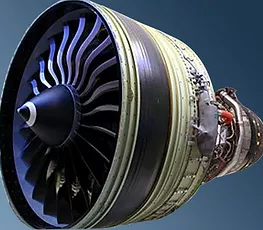PTFE Compounds
Supernol® Aromatic Polyester Powders are a key component in extending the life of parts and components made from PTFE compounds.
When used as a reinforcing filler in PTFE, Supernol® provides:
- good compression, creep resistance, dimensional stability and load-bearing capacity
- excellent wear resistance (5,000 times lower wear than PTFE), without increasing the coefficient of friction
- low abrasiveness: Supernol® / PTFE compounds will not damage soft mating surfaces such as aluminum, stainless steel, and brass
The unique combination of wear resistance, low coefficient of friction, and low abrasiveness makes Supernol® an ideal reinforcing filler for PTFE.

Supernol® powders are used as the sole reinforcing filler in PTFE, typically in the range of 10 to 30 weight %, or in combination with other fillers such as graphite or carbon fiber to cover a wide range of applications as shown in the following table.

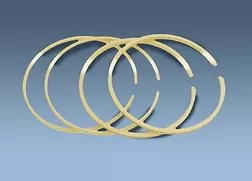
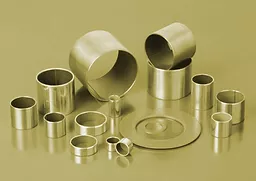
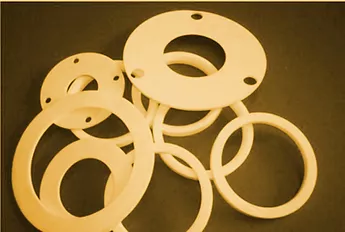
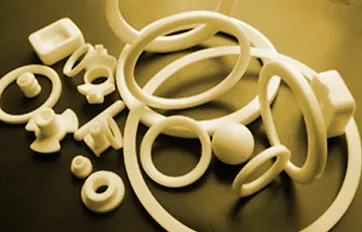
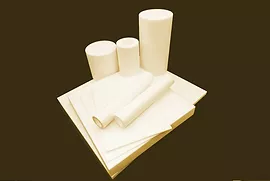
Mechanical Properties of PTFE/Supernol® Compound


Pin-on-disc test, sliding speed: 0.5 m/s, contact pressure: 0.7N/mm²,
Counterpart: Stainless Steel 304 (Ra = 0.1 µm)
Tribological properties of PTFE/Supernol® Compound (ASTM D3702):

Case Study: Comparison of Mechanical and Tribological Properties with a Key Leading Material


Other Applications
Reinforcing Fillers for Fluropolymer and Engineered Polymers
Supernol® can be used as reinforcing fillers in Thermoplastic Fluoropolymers (ETFE, FEP, PFA, etc) and other engineered polymers such as Liquid Crystal Polymers (LCP), Polyetheretherketone (PEEK), PSU, PESU, PES, PAI and polyimide, etc., providing similar benefits with drastically reduced wear, friction and abrasion.
Selected Examples: Effect of Supernol® in PEEK and PES Compounds


Supernol® High Performance Molding Compounds
Supernol® powders can be hot compressed or direct molded to produce high performance, intricate components.


Thermal Spray Powders
Supernol® powders can be utilized to produce thermal spray abradable materials to minimize the gap between compressor blade tips and rotor paths to improve fuel efficiency.
